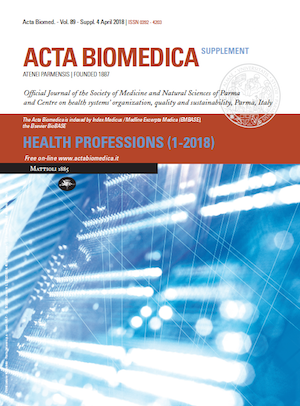The palliative care in dementia context: health professionals point of view about advantages and resistances
Keywords:
palliative care, dementia, chronic care, application resistences, health care operatorsAbstract
Background and aim: The 38/2010 law has expanded the provision of palliative care to patients with chronic-degenerative diseases. The ISTAT data show that 60% of the dying population is suffering from these diseases and could, according to the literature review, benefit particularly from such treatments. This study investigates the point of view of healthcare professionals, working in the context of dementia, regarding the knowledge and application of palliative care in the field of dementia. The focus is on the analysis of the resistance that may prevent the spread of palliative care, slowing the application of such care in different settings of terminality. Methods: The method is a qualitative phenomenological approach. A grid of semi-structured interviews was created and was proposed to 33 health workers (18 women) who work in Health Centres or in the Alzheimer Nucleus of Northern Italy. Results: Most operators think they understand palliative care, they believe it to be useful and necessary, but often only connect it with terminal illness. Others have a broader vision based on a more abstract and theoretical level than on real practical knowledge. A majority of respondents think that the spread of palliative care is slow and difficult because of the prevalence of the biomedical model that holistically and prejudicially hinders the introduction of new models. Conclusion: Appropriate training is the fundamental key to overcoming resistance. The professionals interviewed showed that they were aware of their lack of knowledge and declared that they had little competence in managing the complexity of long-term pathologies.
Downloads
Published
Issue
Section
License
This is an Open Access article distributed under the terms of the Creative Commons Attribution License (https://creativecommons.org/licenses/by-nc/4.0) which permits unrestricted use, distribution, and reproduction in any medium, provided the original work is properly cited.
Transfer of Copyright and Permission to Reproduce Parts of Published Papers.
Authors retain the copyright for their published work. No formal permission will be required to reproduce parts (tables or illustrations) of published papers, provided the source is quoted appropriately and reproduction has no commercial intent. Reproductions with commercial intent will require written permission and payment of royalties.







